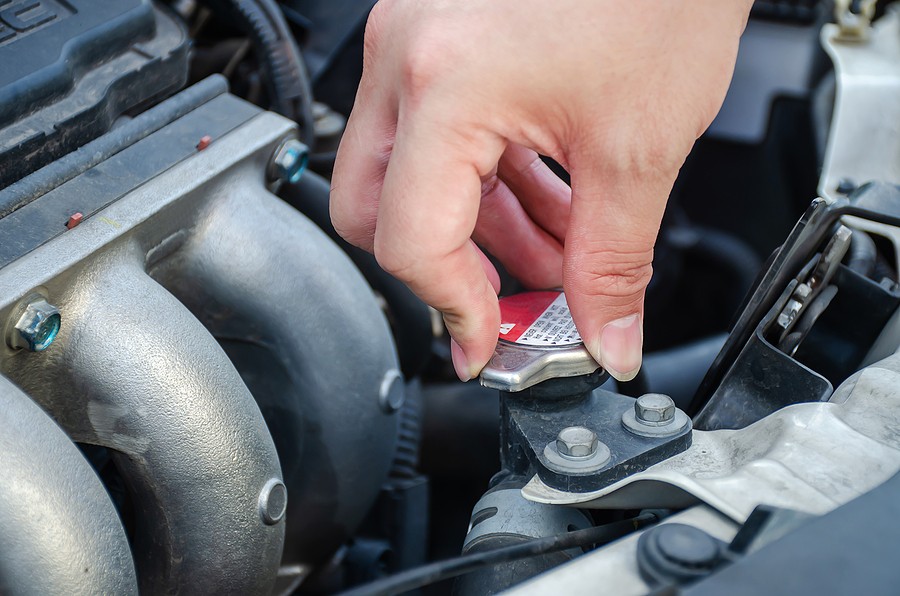If you suspect that you're dealing with a bad radiator, here's “how to tell if your car has a bad radiator?”
- The temperature gauge is reading very high
- Coolant is leaking
- The coolant color is different
- Objects are blocking the radiator fins
- Radiator fins are bent
- The passenger heater is not working
- The radiator hose is cold
Your vehicle's cooling system is one of the most critical systems you have to maintain all the time. One of the core components in this system is the radiator. This radiator is responsible for maintaining the coolant temperature and reducing the engine’s temperature as it exceeds the maximum allowable threshold.
The radiator might go bad before the end of its lifetime, and you must detect the problem as early as possible to prevent extremely high repair costs.
This article provides you with all you need to know about “how to tell if your car has a bad radiator.” Once you confirm that the radiator is bad, you have to fix it or replace it depending on the severity of the problem.
The article also walks you through some expected growth estimates of radiator replacement costs and other essential information to keep in mind when maintaining your vehicle's radiator.
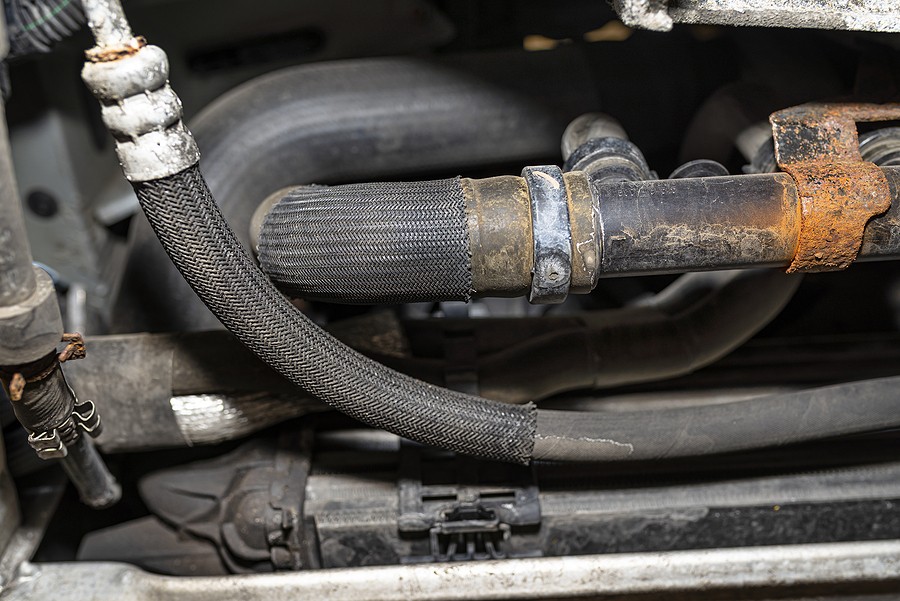
What is the radiator, and what does it do?
Before we explain the different methods to help you determine “how to tell if your car has a bad radiator, ” we must understand what the radiator is and what it does in your vehicle.
The radiator is a core component in your vehicle's cooling system. It is responsible for cooling down the liquid, referred to as the coolant when it is very hot. The coolant runs around the engine to bring each temperature down, and the whole purpose of the cooling system is to maintain engine temperature. Therefore, when the engine temperature increases add exceeds the maximum threshold, your vehicle can easily deal with self-destruction and more complicated catastrophic outcomes than you could have imagined.
Thus, since the radiator is a component in your cooling system, it is as important to maintain the radiator as to maintain the cooling system. In other words, it is essential that you understand when this radiator is expected to go bad and what to do when it does.
How long does the radiator last?
The radiator is a very durable component in your vehicle, and it's designed in a certain way that allows it to last between 8 to 10 years, assuming that you perform its regular maintenance as recommended in your vehicle's owner's manual.
However, failing to maintain the radiator leads to early complications that get the idea or damaged before it even reaches the 8 years if not before.
How to tell if your car has a bad radiator? 7 symptoms
Since there later is important in your vehicle's cooling system and since there is a chance for this radiator to go bad before the end of its lifetime, every driver needs to understand the main symptoms of a bad radiator.
Detecting early symptoms of add radiator helps you resolve the issue fast and for the lowest prices possible. In very common situations, if you could detect the radiator problems early, there's a very high chance that you can fix the problem without needing to replace the entire or together, considering the high price.
The good news is that automotive experts put together a list of Potential symptoms of a bad radiator to help you answer the question, “how to tell if your car has a bad radiator?”
1. The temperature gauge is reading very high
Since the radiator is the main component in your cooling system, most of the consequences of a bad radiator will be linked to consequences related to that cooling system.
For example, one of the most symptoms indicating badger radiators are going bad is when the temperature gauge is reading very high. This indicates that the engine is not receiving the proper amount of cooling, and its temperature is increasing significantly.
Keep in mind that when the temperature gauge reads very high, it could be a combination of other couples here; therefore, your mechanic needs to perform a thorough inspection to confirm whether the issue is coming from a bad radiator or not before moving forward and replacing the radiator considering its high price.
2. Coolant is leaking
When the radiator goes bad, it might force the coolant to leak from connections close to the radiator. For example, if the radiator material is worn out and the component self is getting towards the end of his lifetime, it can easily leak from weak connections. You'll see it in the form of puddles underneath the vehicle.
Therefore, what you can't do to detect this issue is take a closer look underneath your vehicle and look for any symptoms of coolant leaks. Check for any fluid puddles sitting underneath the car and look at this fluid. Keep in mind that the fluids could be engine oil, brake fluids, or other car fluids. Therefore, you get a confirm what type of fluid it is before assuming that you're dealing with a bad radiator.
Keep in mind that whether it's a coolant or any fluid, you must take fluid leaks seriously because it easily damages your vehicle and cost you thousands of dollars on Repair.
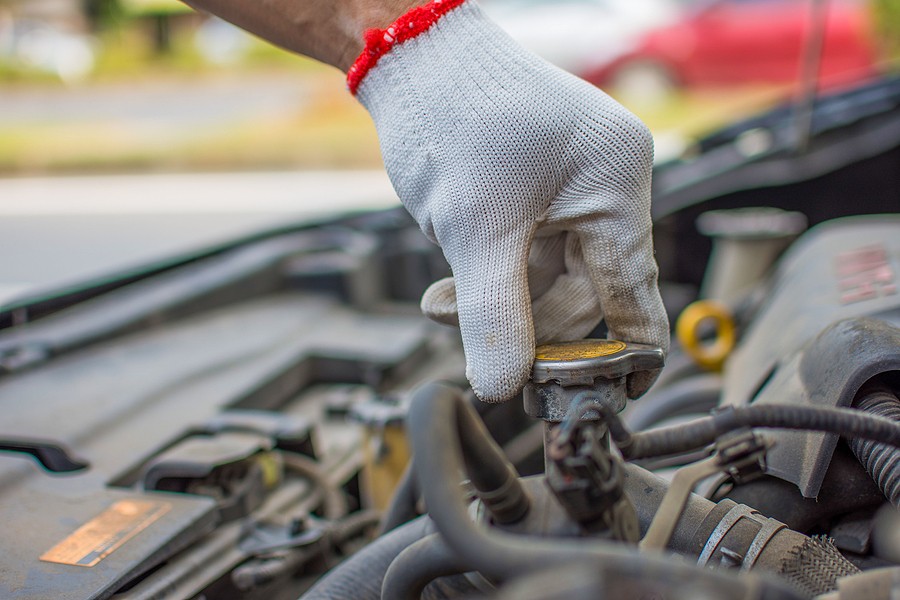
3. The coolant color is different
Your vehicle's fluid should stay the same color. If you notice that the coolant has some discoloration, that could be a good sign that you already or is bad because it could be leaving some objects to float through the coolant as it wears out.
Therefore, you cannot look at the coolant reservoir and check if you see any elements floating on the coolant because it could be a problem related to the radiator and related to other components. Therefore, this symptom also requires additional inspections and investigations to confirm you need to replace a radiator.
4. Objects are blocking the radiator fins
As you noticed before, many of the mentioned symptoms might be linked to different components. However, some specific symptoms could help you answer the question of how to tell if your car has a bad radiator. For example, if you performed a quick visual inspection of the radiator itself, you might find some objects blocking the things and causing some damage to the fins themselves.
If that's the case, you can see if cleaning these objects would result in an issue, but if nothing worked, unfortunately, this long-term blockage might have caused some issues to the radiator and requires you to install new components.
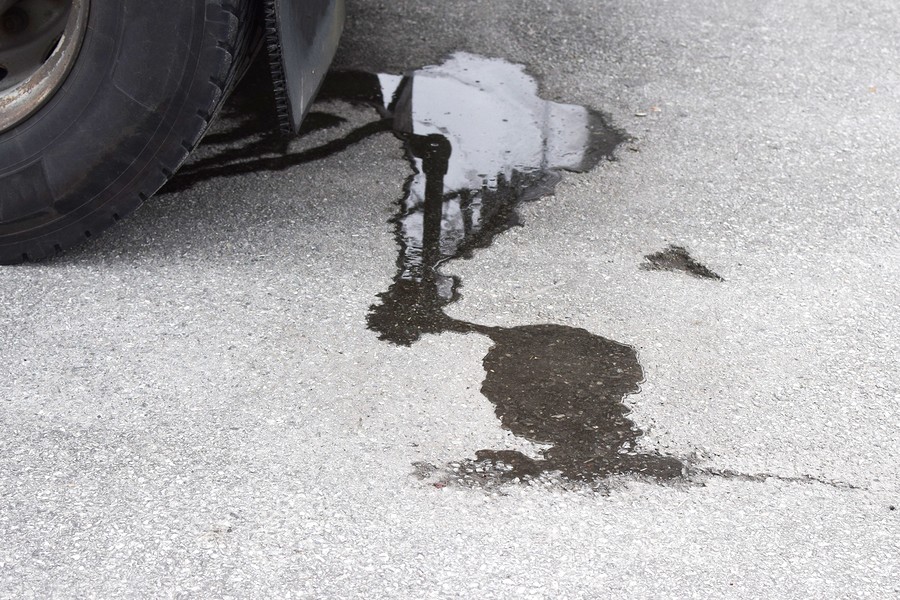
5. Radiator fins are bent
Like the last symptom, you can even look at the fence themselves because when they age, they might get bent or damaged, which means they impact how the radiator performs. Thus, there could be a strong indication that you need to install and will radiate it.
6. Damaged passenger heater
The radiator is linked somehow to the heating system and the cooling system. Therefore, another potential symptom that could mean a better leader is when the heating system does not work on your passenger side. If that's the case, consider checking the radiator as part of your checklist for what's going on with the heating system.
7. Cold radiator hose
Finally, if you go to the radiator location and try touching the radiator hose, you'll immediately tell whether the radiator is working or not. Again, those shouldn't be very cold, and if it's not hot, it indicates that already in it's not doing its job and there's something internally going on.
Keep in mind that inspecting the radiator should not happen when the vehicle is extremely hot. It is recommended that you allow your car to sit and cool down for at least 30 minutes before performing any inspection that involves touching the system. It leads to some risks of burns and other dangerous situations that you never want to be involved in.
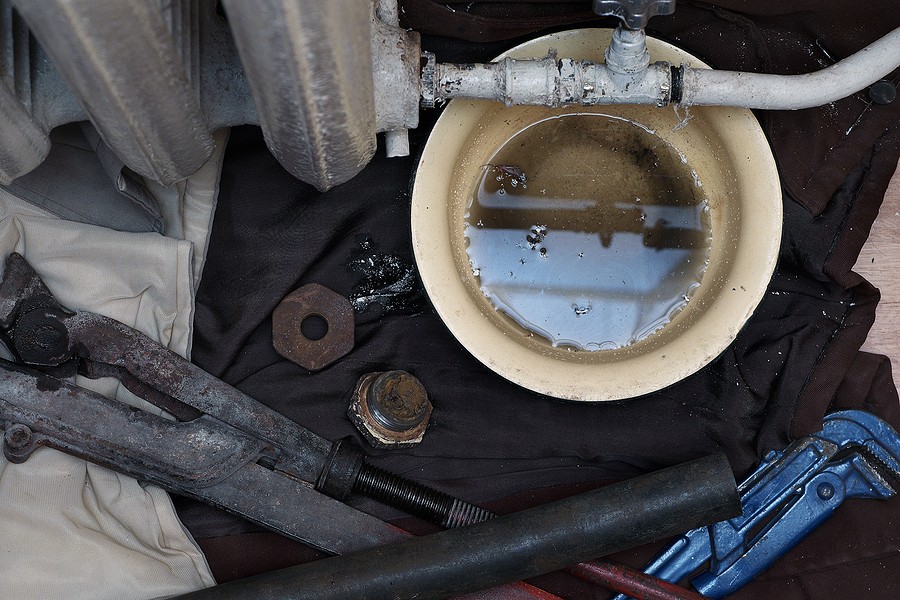
How much does it cost to replace a bad radiator?
If you confirm that the radiator is bad, the next step is to consider all your options to replace it. Unfortunately, radiator replacement cost is not low, and it's one of those very high repair costs that you might encounter during the lifetime of your vehicle.
Typically, radiator replacement costs range from $300 to $900 depending on your legal side and where you get the job done. For example, if you're driving a luxury car and decide to go to a dealership to fix the radiator, your repair costs will be significantly high. On the other hand, if you have an average car that you can get the radiator replaced at a small independent shop, your repair options will be much lower.
Can I drive with a bad Radiator?
When you are about to go bad earlier, you won't necessarily be prevented from driving your car. In other words, initial problems with the radiator will not stop you from driving your car. However, it is never a good idea to continue driving your vehicle with a bad radiator because it leads to other problems that could cost you thousands of dollars on their pair.
For example, since the radiator is responsible for cooling down the engine when it doesn't work properly, the engine can get very hot, leading to engine overheating, and damaging the entire engine. Think about how much it will cost you to fix an engine versus replacing a radiator?! Thus, it's never a good idea to continue driving your car with a bud or dealer, and instead, you should prioritize fixing the radiator to prevent dealing with other issues
Is it worth fixing the radiator?
Fixing the radiator is a must, and you cannot ignore it no matter whether it's worth it. However, you can decide whether you want to put the investment or sell your vehicle instead.
You must evaluate your vehicle's overall situation and calculate the total repair cost before making any car repair. For example, if you realize that their costs are piling up and getting close to just 75% more than the vehicle's value, that could be a good sign that you should sell your vehicle instead of wasting your time, energy, and money. Are you looking for someone to buy it? Are you a damaged car? Cash cars buyer does! Reach out to our team today by giving us a call at 773-791-4363!

Final thoughts
The cooling system, in general, is extremely important in your vehicle, and some of the very common components that might impact its performance are the radiator.
The radiator can go bad at any time, although it is very durable and my life up to 8 to 10 years. However, there are some instances where it goes bad prematurely—understanding how to tell if your car has a battery is very important to prevent additional problems that will cost you a lot of money shortly.
Fixing the radiator is essential, but it might not be worth your investment if your car has other major complications. Therefore, you should evaluate whether it's worth fixing the radiator or not based on the total or fear cost. If you ended up selling your vehicle instead, we highly encourage you to reach out to cash cars by!
Cash cars buyer is one of the top-rated car removal companies in the nation that guarantees to pay you the top dollars and provide you with free towing despite your living location around the united states.
Our process is very straightforward and doesn't take more than a couple of days to get your car removed safely and for the most money.
All it takes you is to:
- Describe your car's type and condition
- Receive our instant free quote
- Accept the quote
- Get your car removed and receive your cash payment on the spot!
To learn more about our process and our team, you can reach out to us by calling us at (773) 791-4363 or visiting our home page click on the free instant online offer.

